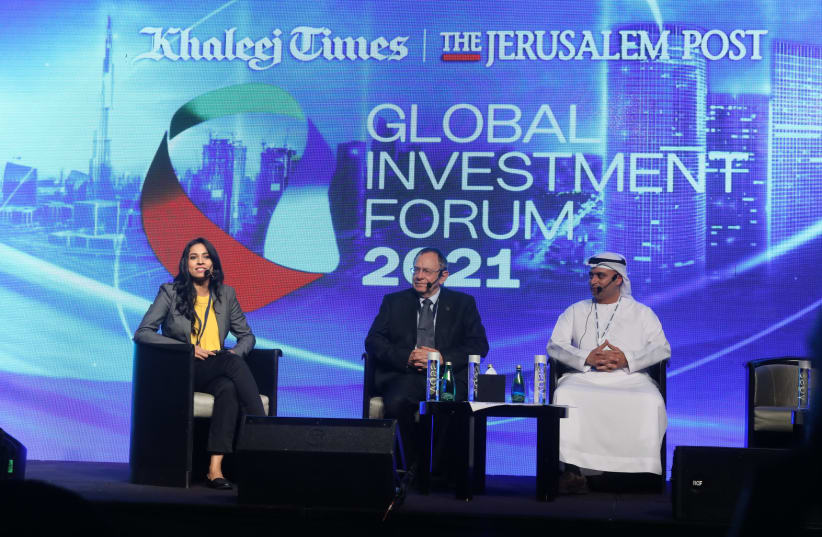“This is an extraordinary opportunity to strengthen bilateral ties between the two countries,” said Prof. Rafi Beyar, one of the managing general partners of the ALIVE Israel HealthTech Fund, who took part in the Global Investment Forum in the United Arab Emirates, which was sponsored by The Jerusalem Post and the Khaleej Times, the leading media group in the UAE.
The fund has strategic partnerships with Maccabi Healthcare Services, the Assuta Medical Center network, the Maccabi Fund, Leumi Partners, the British investment group CBG and Carilion Clinic, an American healthcare organization.
“We work in the life sciences industry, and we have had a number of conversations with various parties in Dubai,” said Beyar, former director of the Rambam Medical Center and dean of the Technion-Israel Institute of Technology’s Faculty of Medicine. “There is quite a bit of interest in medicine, and they also have very specific issues that they want to promote. Dubai has world-class medical centers and is interested in clinical and technological collaborations with Israel.
“They have extensive needs in population management, healthcare management and the transition to digital,” he added.
“Two common problems there are obesity and diabetes, and they want to know how to manage it – to learn who is prone to obesity. Using Israel’s powerful digital capabilities and the ability to analyze data with artificial intelligence, together we can advance our abilities and influence the entire world.”
Managing general partner Michel Habib, the former CEO of Hadasit Bio-Holdings, added: “They also need advanced treatments, solutions in the field of oncology, and the ability to provide digital medical advice remotely.
“Another area that interests them is investing in cyber technology. Hospitals are increasingly vulnerable to cyberattacks, and this is an area that is strategically important to them.”
One of the companies that ALIVE invested in and that is suitable for such collaboration is Cynerio, a cybersecurity company that has developed a platform to protect IoT (Internet of Things) medical equipment in hospitals.
“Usually, when there is a cyberattack on nonmedical organizations, the first thing the system does is stop all activity and assess, but it would be life-threatening to shut down medical equipment,” said Dudi Klein, managing partner at the fund, who previously headed the innovation division at Assuta. “The company’s platform identifies which equipment is a life-sustaining medical device and which are secondary systems, and alerts security personnel who can handle the problem.
“In addition, the system warns and displays abnormal behaviors so that the attack can be prevented even before it is launched.”
This article was written in cooperation with ALIVE Israel HealthTech Fund.
